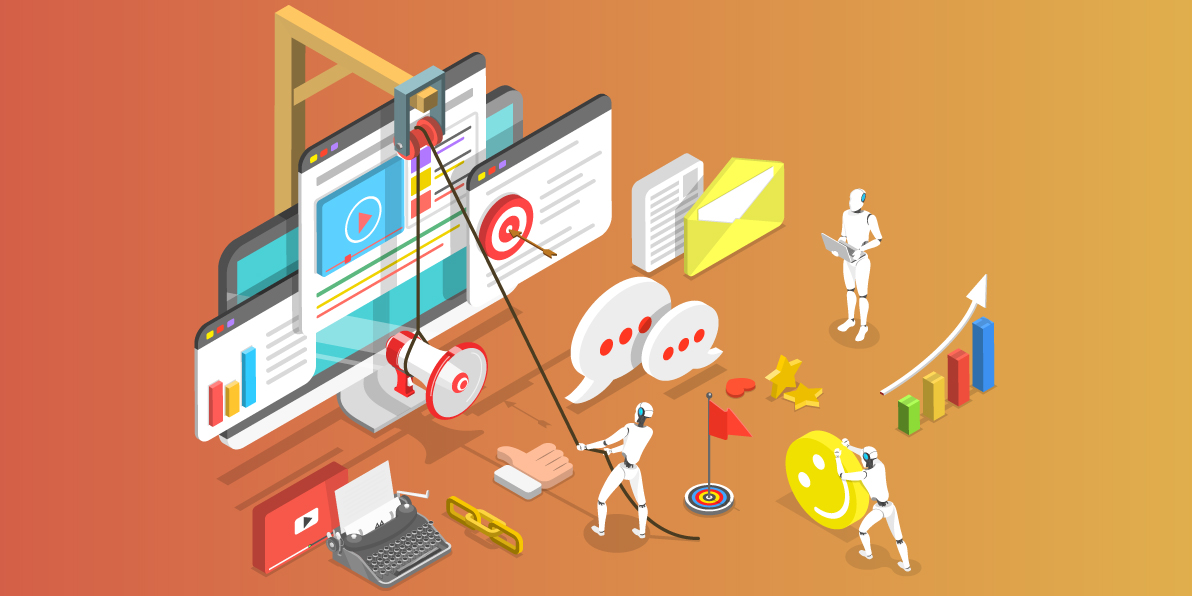How Hypha HubSpot Development Is Using ChatGPT (& Other AI Tools)

It’s been impossible to miss the steady drumbeat of attention around AI throughout the past several months—with particular focus on OpenAI’s ChatGPT, which has grabbed almost all of the headlines in the space since launching in late 2022.
So far, we’ve seen a wide range of opinions and predictions around this generative AI—which produces seemingly organic responses to queries modeled on the language patterns and data it has been trained on.
Even at this early stage, one thing is almost certainly true: AI tools are here to stay, which means that professionals—including marketers—need to know how best to leverage what they do well, without losing sight of their shortcomings and limitations.
At Hypha hubSpot Development, we're always looking for new ways to improve our services and deliver better value for our clients. And, as a HubSpot Partner Agency, we’re looking forward to being able to leverage the company’s recently announced AI-powered content and chat tools.
Recently, we've been testing ChatGPT, specifically, to figure out how best to use it on behalf of our clients. As such, we’ve seen some of its strengths and weaknesses up close, and have begun answering some of the key questions surrounding the tool’s likely impact on our industry, and our clients’ marketing needs.
Will ChatGPT & Other AI-Powered Tools Take Our Jobs?
When it was first introduced, the predictions around ChatGPT suggested that it would put writers and marketers out of business for good—to say nothing of lawyers and a range of other professionals whose jobs rely on producing content.
Having used it for some time, we’re relatively confident that those predictions are overblown, for several reasons:
- It’s not able to pull up-to-date information. At the time of writing, ChatGPT’s data cutoff is in September 2022, making it unsuited for anything that requires recent stats or updates.
- It can provide misleading and/or false information. There has been no shortage of reports on its ability to write articles that are demonstrably false—something that is a feature of its predictive language modeling. When asked, for example, to write about the first female president of the United States, it produced a confident-seeming article about Hillary Clinton's first term in office.
- It’s not that great of a writer. Sure, this might not matter if you’re looking to produce content for the sake of it, but spend any time reading posts it creates and you’ll start to notice that the content is somewhat formulaic and predictable—as if you’d taught a 9th grader to write an essay. In the world of content marketing, where you’ve often only got seconds to make your value proposition stand out, the tool simply isn’t there yet.
- It can’t think strategically. By definition, ChatGPT doesn’t actually think at all. It simply assembles content by predicting the most likely next word in a sequence, in response to a given request. While that makes it attractive as a potential source of quickly written content, those abilities fall short when it comes to tailoring posts to specific segments of the buyer’s journey, writing for the needs of target audiences, or even realizing when a string of words is undercutting your brand’s identity or core values. As such, it’s not a tool that can presently—if ever—be set loose to create content without expert oversight.
How Can ChatGPT Help Our Content Team?
With all that said, there is no question that ChatGPT—and tools like it—are the future, and they’re set to reshape everything from how we gather data, find inspiration, and even nurture leads through the buyer’s journey.
Here are a few areas where we’ve found some success with ChatGPT to date:
- Summarizing existing content. Perhaps the best content-related use case for the tool to date, our experiments have yielded good results when we limit the amount of information we allow ChatGPT to use, and ask it to produce summaries for social posts, email, and the like. Feeding it a blog post, for example, and asking it to return a series of potential posts for LinkedIn, reduces work that could have taken a half hour or more down to just a couple of minutes—with a greatly reduced risk of it including incorrect or fabricated information.
- Suggesting outlines for pillar pages. Similar to the above point, we’ve had good results testing the tool’s ability to provide outlines for pillar pages based on a series of existing blog posts—a task that can help our content developers to save time.
- Content gap analysis. An extension of the previous point, ChatGPT can also provide feedback on areas where our content may be lacking around a specific topic, and suggest ideas for new pieces.
- Initial research. ChatGPT’s conversational interface makes learning about a subject easy and intuitive, reducing the need to peruse dozens of websites. Of course, this comes with the need to verify that the information being presented is accurate.
As Samyutha Reddy, Head of Enterprise at Jasper, quoted in a recent blog post for HubSpot noted: “I've never met a content creator who has said, 'Wait. I really want to spend more time doing all the rote tasks of reading everything I need to know on the internet about a given topic.' AI will give marketers more time to be creative, form an opinion, and incorporate more data sources into their perspectives."
What Other AI Tools Are Out There?
It’s equally important to note that, while ChatGPT may be getting the headlines right now, AI tools—particularly for content creators—have been around for some time. Among these, Grammarly (a grammar checker and text enhancement tool) and Otter (an AI-based transcription tool) have been part of our own stack for quite some time, and have helped our team to become faster, more accurate, and more productive—and we expect to see the same evolution in our usage of ChatGPT and other similar systems, such as Google’s response, called Bard, and Microsoft’s AI chatbot, Bing.
As these technologies—and their rivals—improve in the months and years ahead, we are committed to keeping up with developments and using the best of the new tools to help us do our jobs better and faster. That doesn’t mean, however, that we’re going to be outsourcing our jobs to them: The examples cited above of ChatGPT producing content that is demonstrably false or sourced inappropriately are just the tip of the iceberg, and demonstrate the need for experienced writers and editors to always have a hand in the process. In a world where a single mistake can be rapidly amplified via social media, quality and accuracy of content will remain paramount.
Our Outlook
With all of that in mind, the best way to sum up how we are approaching ChatGPT and the host of other rapidly developing AI tools is: cautiously, but with curiosity. We believe that these tools have a large role to play in the future of content marketing, and we’re excited to see how the landscape evolves along with them. Concepts such as what makes for “good” SEO, inbound marketing, and even site copy are likely to shift radically in the months and years ahead, as brands explore new ways to stand out amid a coming torrent of content.
However, with many years of experience behind us, we know that simply producing and publishing words isn’t enough. Throughout the past couple of decades, search engines (SERPs) have evolved to reward content that users find useful, leveraging a range of factors such as on-page experience and time on site to determine whether a piece of content met a consumer’s needs or not.
While generative AI tools such as ChatGPT potentially enable almost any company to publish at scale, they make that kind of expertise—the ability to create content that stands out and serves a user’s needs beyond a simple answer to a question—even more important. That’s the work we’ve been doing to deliver value for our clients all along—and the value that we plan to continue bringing to the content we produce, AI-assisted, or otherwise.


